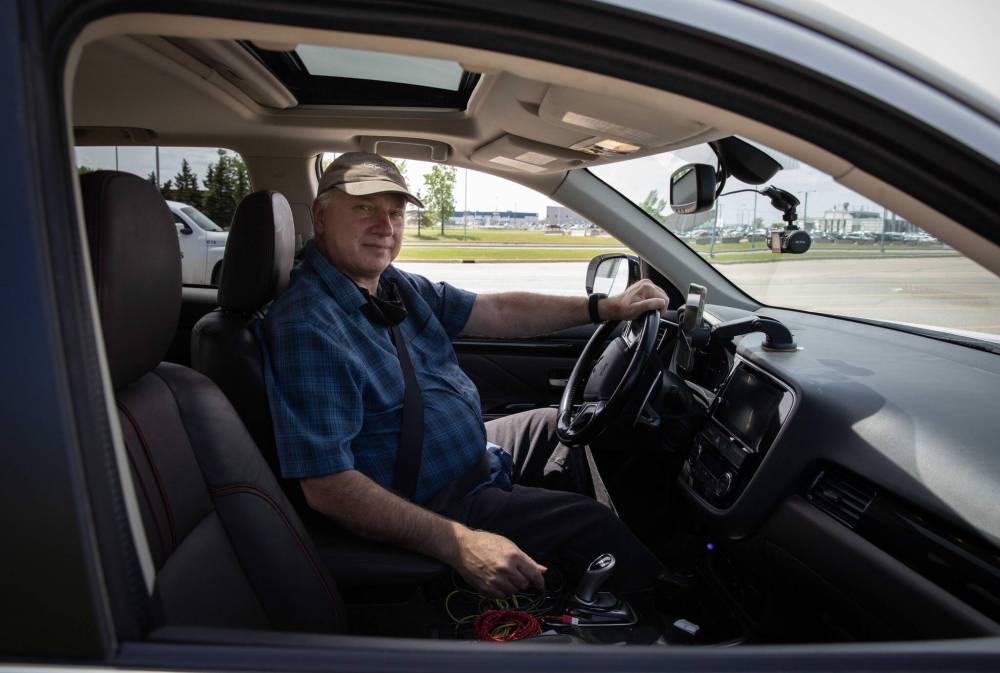High prices force change in driving habits
Advertisement
Read this article for free:
or
Already have an account? Log in here »
To continue reading, please subscribe:
Monthly Digital Subscription
$0 for the first 4 weeks*
- Enjoy unlimited reading on winnipegfreepress.com
- Read the E-Edition, our digital replica newspaper
- Access News Break, our award-winning app
- Play interactive puzzles
*No charge for 4 weeks then price increases to the regular rate of $19.00 plus GST every four weeks. Offer available to new and qualified returning subscribers only. Cancel any time.
Monthly Digital Subscription
$4.75/week*
- Enjoy unlimited reading on winnipegfreepress.com
- Read the E-Edition, our digital replica newspaper
- Access News Break, our award-winning app
- Play interactive puzzles
*Billed as $19 plus GST every four weeks. Cancel any time.
To continue reading, please subscribe:
Add Free Press access to your Brandon Sun subscription for only an additional
$1 for the first 4 weeks*
*Your next subscription payment will increase by $1.00 and you will be charged $16.99 plus GST for four weeks. After four weeks, your payment will increase to $23.99 plus GST every four weeks.
Read unlimited articles for free today:
or
Already have an account? Log in here »
Hey there, time traveller!
This article was published 18/06/2022 (1268 days ago), so information in it may no longer be current.
Record prices at the pumps are taking a bite out Manitobans’ wallets and livelihoods.
With fuel prices expected to remain high into 2023, some Manitobans are changing their habits — and re-examining their professional futures.
Hartley Macklin
Macklin has driven with Uber since they came to Winnipeg in 2020, but that time may be coming to an end.
“There’s a lot I like about driving with Uber, the passengers are great and it’s nice to make my own schedule, but I’m not thinking this will be my full-time career for the rest of my life.”
Macklin, 61, began driving with the company after the COVID-19 pandemic stalled his full-time job. He said the combination of gas prices, potholes, construction and traffic make this the most discouraging time to be a service driver.
“When I fill up my tank, it’s a shock every time now,” he said. “When I started during the pandemic, gas was as low as $0.70. We’ll likely never see that again.”
Back in March, Uber Canada implemented a fuel surcharge of $0.50 on every ride that goes directly to the driver. The price of gas has since skyrocketed beyond $2 per litre, but the surcharge remains the same.

“People think the fuel surcharge is supposed to cover the cost of your fuel. It’s actually supposed to cover the additional cost of your fuel. When it was introduced, gas was $1.70 per litre and the surcharge was supposed to be to make up for the rise, but it’s gone up once again.”
When Uber became his full-time gig, Macklin bought a car that was good on gas to adjust to the rising prices.
Uber said they will continue to monitor the gas price situation and make appropriate changes to the surcharge if necessary.
Macklin said it’s easy to think increasing the fuel surcharge would be beneficial for drivers, but it isn’t that simple.
“If you raise the price too much, you’ll lose customers and will actually be making less money. If you get rid of the surcharge, drivers will walk away.”
Adam Johnston
Johnston switched his commute to work two years ago and hasn’t looked back.
“I probably save over $200 on gas alone each month,” he said.
Johnston, 41, travels from Elmwood to St. James for his job and converted to biking during the pandemic to save money and help the environment. He encourages others to do the same.
“To drive right now with the price of cars, gas and insurance, it adds up,” he said. “There are a few reasons I’d recommend people at least start looking into cycling. Outside of the financial benefits, it’s also great for your physical and mental health.”
Since the price of gas has surged, Johnston said he has seen more residents cycling than in previous years and hopes the trend continues.
Debbie Kittner
Kittner has worked with First Choice Courier & Messenger for 20 years and has never seen a fuel surcharge as high as the 58 per cent mark currently in place.
The company bases their surcharge on government guidelines. While it helps drivers make ends meet, the increase has caused a significant drop in their customer base.
“The surcharge benefits our drivers who have families and are working just like everyone else. When we lose customers, they aren’t getting as much work,” she said. “If we didn’t have a surcharge, we would lose our drivers. They wouldn’t be able to afford to drive their vehicles because their paycheque would be spent on fuel.
Kittner said the company sets low rates in part to make up for the fuel surcharge, but she’s worried about a future where the price of gas doesn’t drop.
“If customers are going to refuse to pay the rates, we’ll have to close our doors. We’ve lost a few customers and gained a few who support us. It’s not a good place to be right now.”
bryce.hunt@freepress.mb.ca


